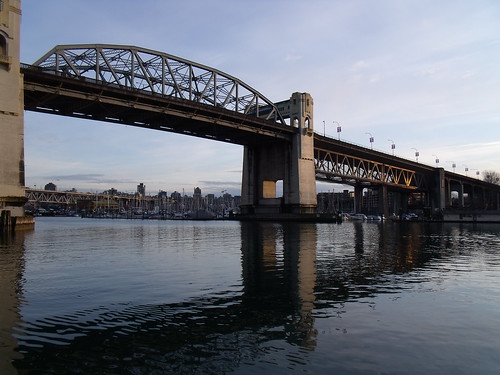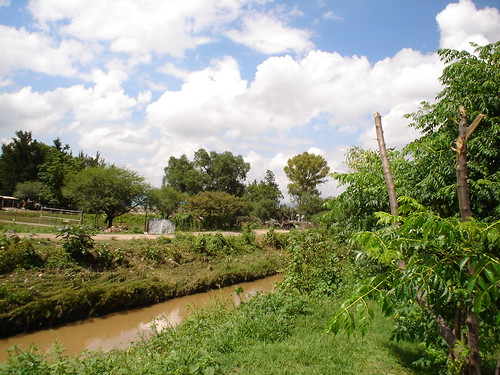While the interactions between food security and water is not my field of scholarly research, I have always had concerns about the amount of freshwater used in agricultural production. From the materials that the Food and Agriculture Organization (FAO) produced to promote World Water Day 2012 (whose theme this year is Water and Food Security), I found some interesting (and intriguing) thoughts.
In the last 50 years, the world’s cultivated area has grown by 12% and agricultural production has grown 2.5 to 3 times (FAO, SOLAW, 2011). Agricultural water use has helped meet rapidly rising demand for food and has contributed to the growth of farm profitability and poverty reduction as well as to regional rural development and environmental protection. 55% of the food production comes from irrigated or drained areas and 45% from the other areas. But…It takes in average 3 000 litres of water to produce the food needed to feed one person for a day. With the world population increasing to 9 billion by 2050, and most of that growth expected in urban areas, the challenge of feeding the world in a resource scarce environment has never been greater.
Already today in an increasing number of regions and watersheds, the demand for water outpaces available supply, translating into environmental degradation and increased competition among di erent users. About 12%of the global land area is currently in use for cultivation of agricultural crops. Agriculture also uses 70% of all water withdrawn from aquifers, streams and lakes. After water has been used for domestic, industrial and agricultural purposes, only lower quality water is returned to the system, directly or by non point sources pollution (nutrients, pesticides derived from crop and livestock management). Yet in some countries in the arid and semi-arid zone, food production is only possible by irrigating. Food production is
not negotiable but what can be negotiated is where, when and how food is produced and consumed.
At no point did I read in these materials any discussion on the use of wastewater in agricultural irrigation (a practice that is relatively frequent in Mexico and that I have documented and discussed previously in my research on wastewater governance – see for example Pacheco-Vega 2005, Pacheco-Vega and Basurto 2008, Pacheco-Vega 2011). This is sometimes a bit of a taboo topic, as the use of wastewater in agricultural irrigation has inherent risks (as noted by Scott, Zarazua and Levine 2000). Yet, in regions afflicted with drought, wastewater use may not be a luxury but a necessity.
To ensure food security we may need to consider access to non-conventional sources of water, and bring this topic to the table. I hope UN-WATER and the FAO can make this topic part of the global discussion on water scarcity. As I have predicated at length in my research (and teaching), looking at water from an integrated, closed-cycle perspective is extremely important. Wastewater can’t continue to be the “ugly duckling” of social studies of water. We need to get beyond the culture of flushing and learn to really govern water properly.



Excellent point on the need to take wastewater use into the forefront of global disucssions on water scarcity. I’ve seen wastewater from clothes and dishes washing being used widely in domestic horticulture in South America because of the lack of fresh water for such purpuses. You’re absolutely right, in regions afflicted with drought, wastewater use is not a luxury but a necessity! What we need is investment in simple filtering systems to remove organic compounds from domestic wastewater to make its use safer. The problem with the world, especially with developed countries, is that we waste too much waste! I often mention in my blogs how we should be making better use of waste for biofuels, rather than using land to grow oil crops to produce biodiesel.